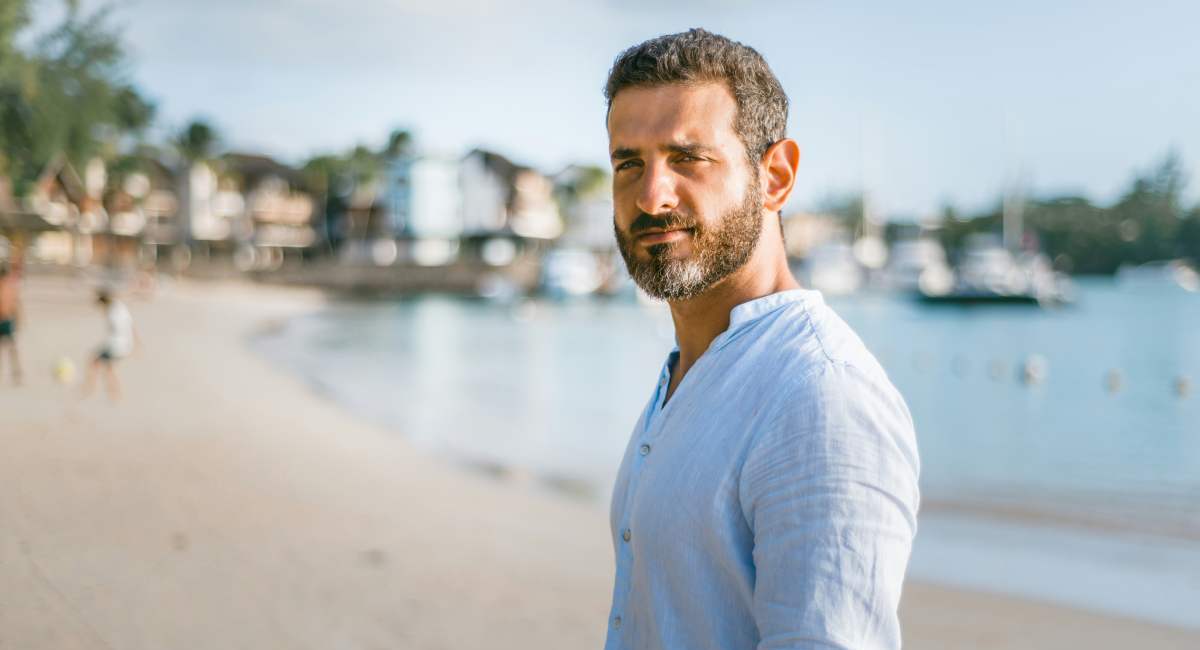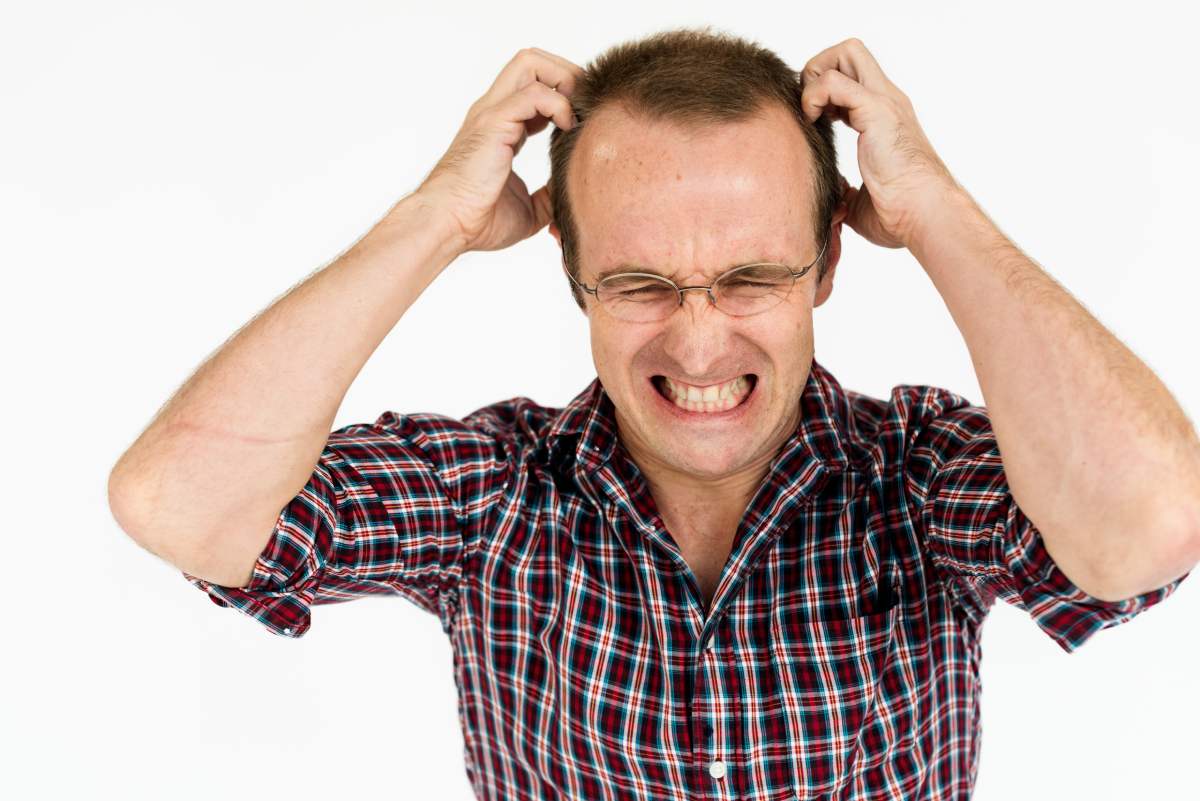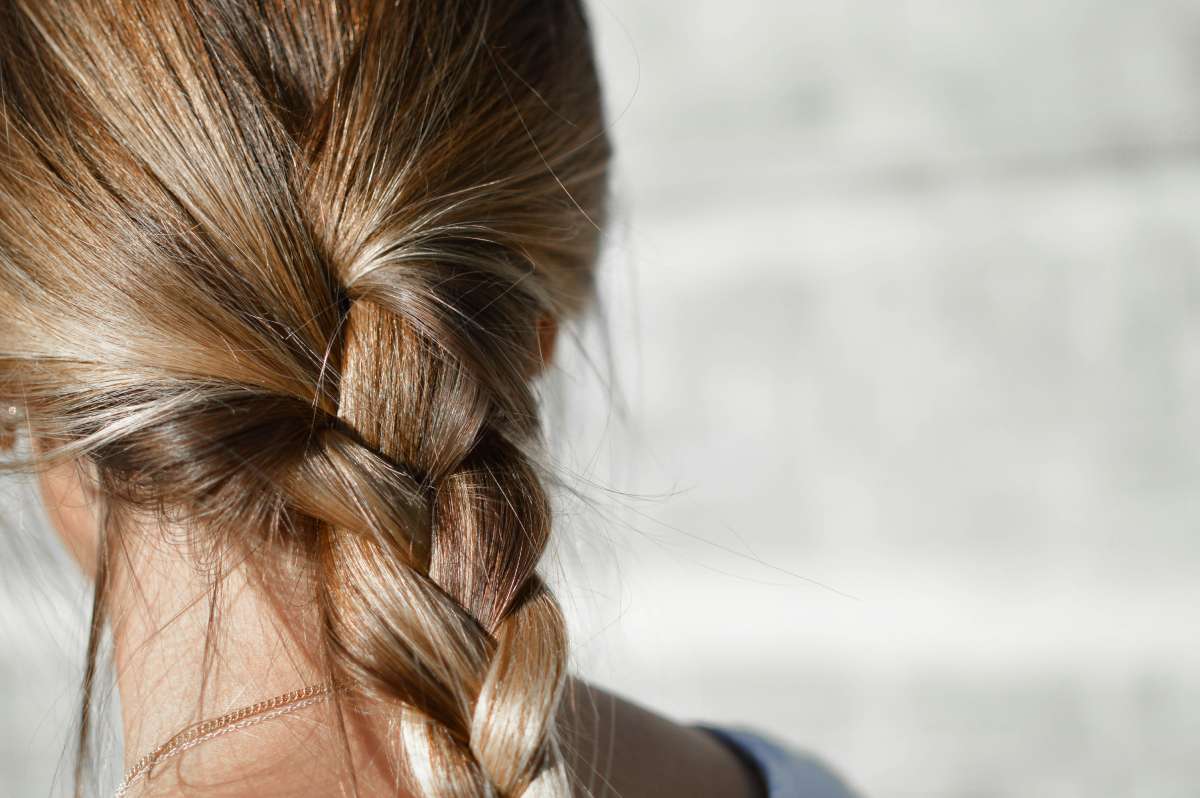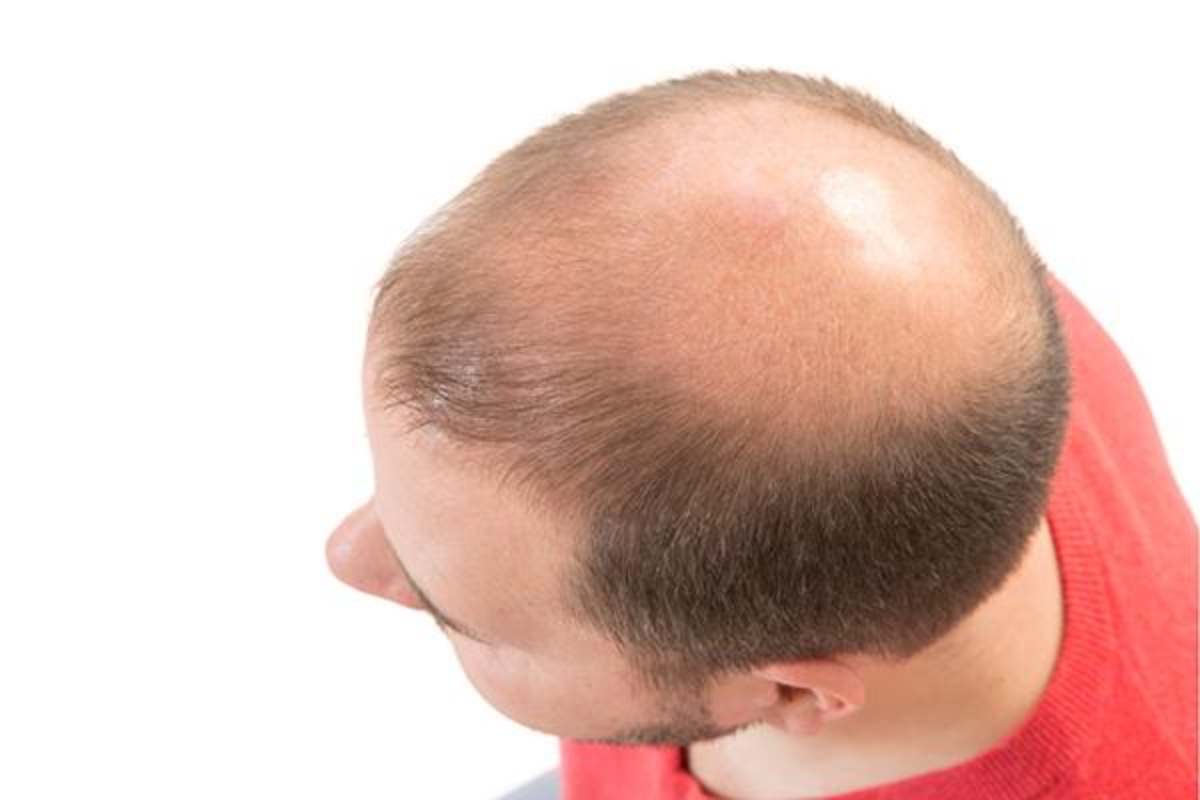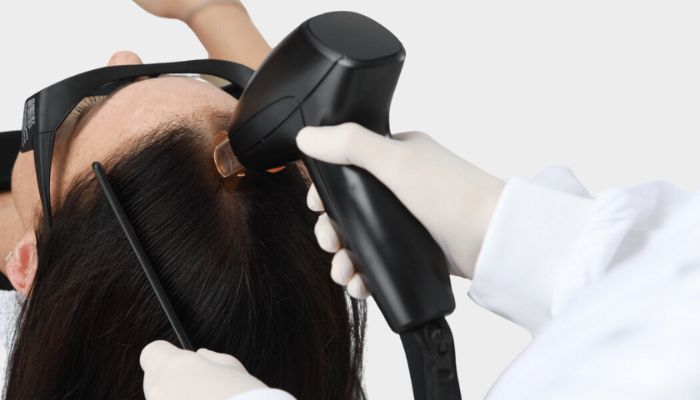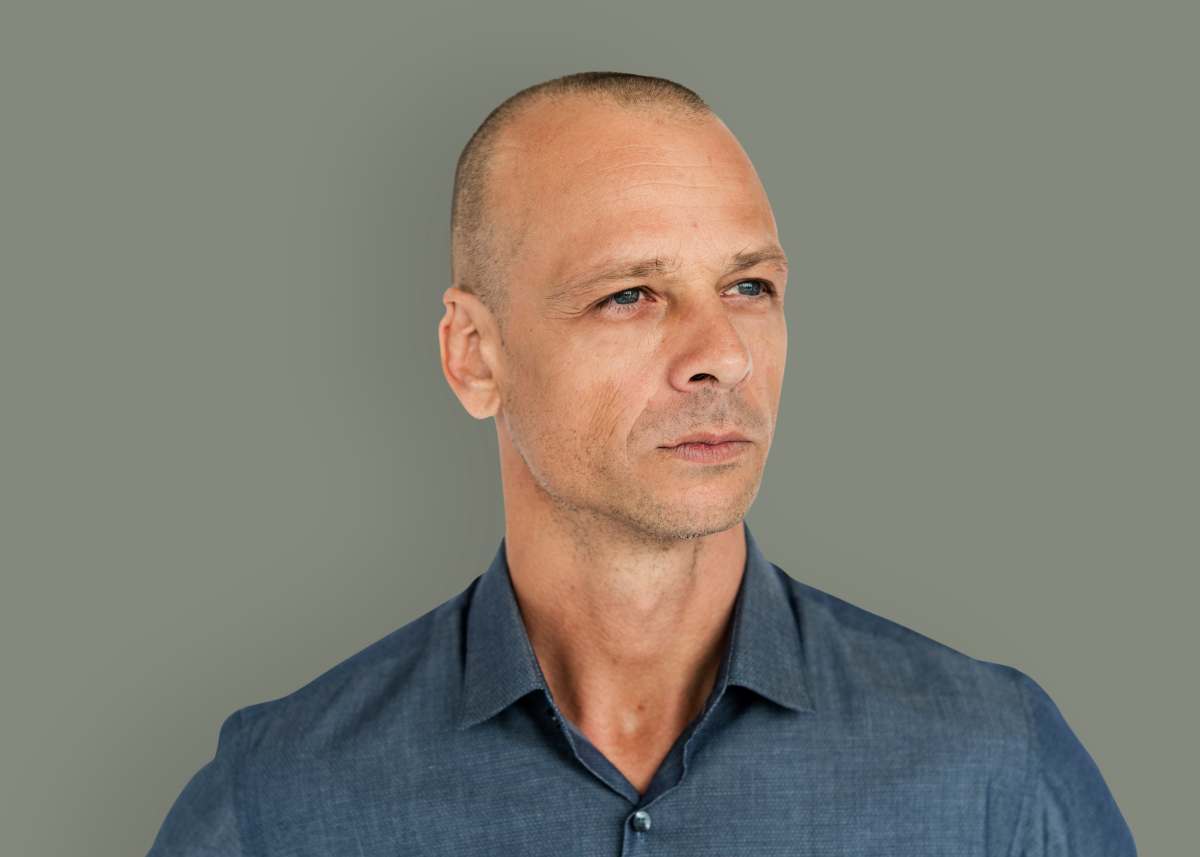It’s been a year since COVID-19 descended upon the world and even with all of the research and studies we still don’t know everything there is to know about this disease, especially when it comes to the long-term effects.
The virus seems to affect different people in different ways. Some people have mild, cold-like symptoms, while others develop more serious respiratory complications that require medical intervention. Some people recover and have no lingering signs of the virus, while others feel the effects of the illness for weeks, or months.
The more common lingering side effects include shortness of breath, fatigue, cough, headache, and joint pain. These side effects would make sense considering what we know about COVID and its effects on the respiratory system, but if it’s mainly a respiratory disease, why are some people experiencing hair loss after recovering?
Is this temporary hair loss a direct effect of the virus itself or is it related to the symptoms attributed to the illness?
Is The COVID-19 Virus Causing Hair to Fall Out?
While there have been many cases of COVID patients seeing hair thinning and hair loss months after recovering from the disease, scientists don’t believe that the virus is actually attacking the hair follicles.
The effects of the virus itself is not the cause of the hair loss, but rather the physiological and emotional stress of dealing with the virus is what they believe to be the reason some recovered patients are seeing their hair fall out.
So while the virus itself is not the reason some people are seeing their hair fall out months after recovering, you should still be aware of why this is actually happening and what you can do to help the situation.
If COVID-19 Isn’t the Cause of the Hair Loss, What Is?
Simply speaking, the reason that COVID patients are seeing their hair thinning, or falling out, months after recovering from the virus is due to the stress and shock that the virus has on the body.
The good news though, is that this type of hair loss is usually temporary and will resolve on its own after a few months, but that doesn’t make it any less alarming.
After dealing with a high fever or severe illness, many people experience hair shedding to some degree. You may not always notice it if you don’t have longer hair, but pulling out clumps of hair while taking a shower can be concerning, especially if you haven’t been sick for months.
This type of hair loss, known as “telogen effluvium” or excessive shedding, is brought on by illness, stress, or trauma which forces the hair follicles into the telogen phase (shedding phase) of hair growth.
On average, a person sheds 100 strands of hair per day, but most people barely notice it. If you wear hats on a regular basis, or clothing that the hair can stick to- like a hoodie, then you might observe it on your accessory. It’s when a more than normal amount starts to shed that most people become concerned, and rightfully so.
This shedding of the hair is very different from your typical androgenic alopecia (or male/female pattern baldness) in that it usually occurs a few months after a stressful event and most of the time it is only temporary.
The stress your body went through when trying to fight off the COVID-19 virus can effect your hair follicles, causing more of them to enter the telogen phase, and subsequently falling out. And because it usually happens a few months after the stressful event, or illness with a high fever, it’s often hard to pinpoint the exact cause. Humans are programmed to see cause & effect in quick sequence. When shedding happens months later, we often forget or overlook the offending culprit.
But in the case of people claiming their hair is falling out from COVID-19, most scientists agree that it’s not the actual virus that is causing the issue, but rather the stress as well as the fever related to the illness that causes the hair to fall out after recovering.
I Never Had COVID-19 and I’m Noticing Hair Loss?
Some doctors have noted an uptick in patients complaining of hair loss over the last year even though they never contracted COVID. This uptick can be explained for similar reasons to those complaining of hair loss after recovering from the virus.
The pandemic itself, as well as the shutdowns that governments have put in place, are all very stressful. These are situations that most of us have never been put in before in our lifetime and it can take a toll on our mental health as well as our physical health.
The stress and worry of sheltering in place, trying to stay healthy and protect our families, while also adjusting to a new work/life balance with children being home from school and parents being forced to work from home or having to work in essential jobs during the pandemic, can all have a negative affect on our mind and bodies.
It’s the stress related to all of these things that can also lead to an increase in people noticing more hair shedding. But again, in the majority of cases this is just temporary.
How Long Will it Last and When Will I Recover?
As we’ve mentioned, the good thing about this type of hair loss is that in most cases it is temporary. Signs of this type of hair shedding usually will not occur until 3-6 months after the stressful event, or trauma has occurred.
So just because you see your hair falling out now, does not mean that it may not be related to something that happened earlier this year. In addition to that, it can take 6 months or more to resolve on its own. And that’s assuming you haven’t created more stress by obsessing about the hair you see in the shower, on your floor or in your brush!
If you’re concerned about the amount of hair you’re losing and can’t pinpoint a stressful event or situation in your life within the past few months that may have triggered it, it’s important to see your doctor to rule out any other causes.
If you’re experiencing a noticeable increase in hair shedding right now, there’s a good chance it’s related to the mental and physical stress that the COVID-19 pandemic and the temporary community shutdowns are having on all of us.
Mental health can be just as big of a factor as physical health when it comes to your hair loss but the same can be said of your blood pressure, diabetes, heart disease and weight gain during this pandemic. Please do what you can to stay healthy and manage stress by being proactive: eat healthy, take walks, pray or meditate, seek comfort from family & friends even if it is through Zoom. This will help with your physical and mental health while we deal with a worldwide health crisis. Together, we’ll get through this.

